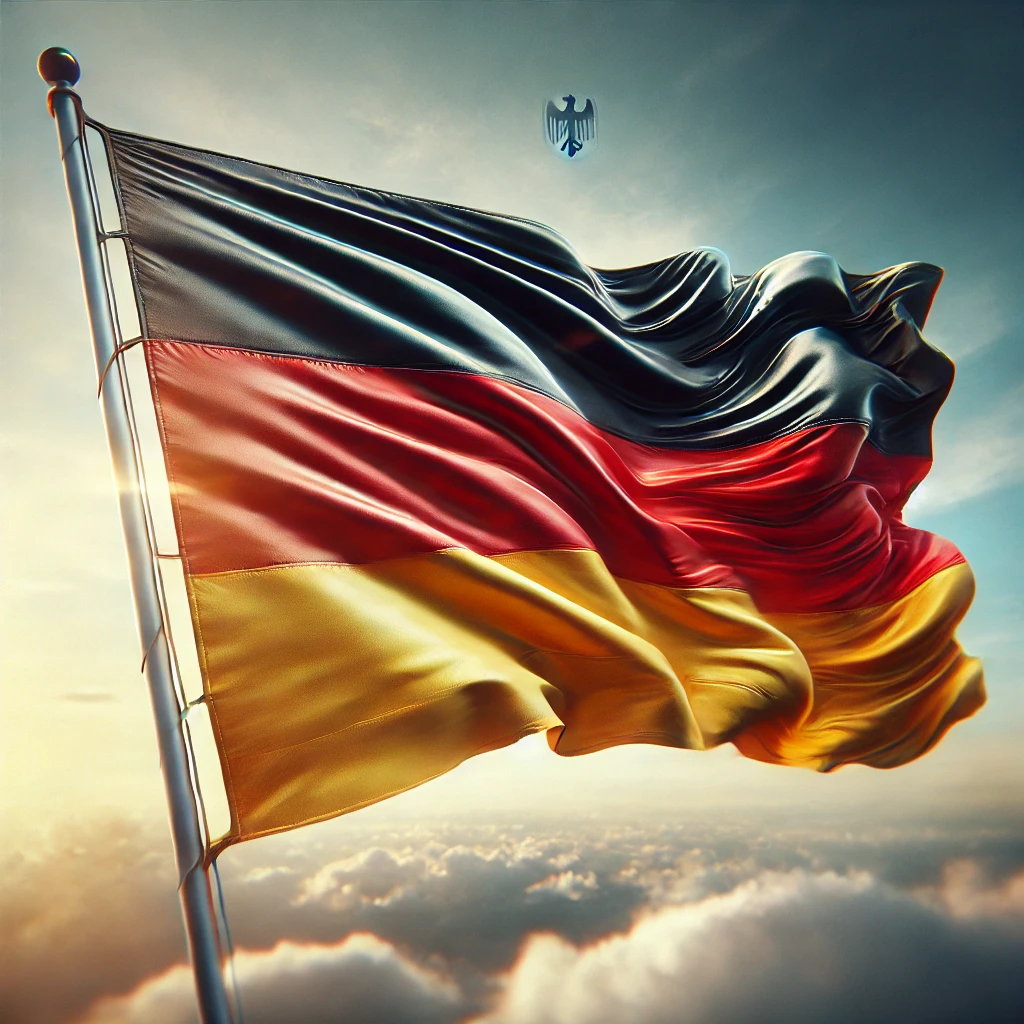Germany, often seen as the cornerstone of the European Union and a global advocate for human rights, is facing increasing criticism over its recent political and military decisions. The country’s alignment with the United States and its controversial stance on the Israel-Palestine conflict has raised eyebrows not only in Europe but across the globe. While Germany’s leadership under Chancellor Olaf Scholz claims to be acting in the interests of peace and security, many now view the country as a shadow of its former self—no longer the moral compass of Europe, but a nation that prioritises geopolitical interests over humanitarian concerns.
Germany’s Continued Support for Israel
In a recent speech to the Bundestag, Chancellor Olaf Scholz reaffirmed Germany’s unwavering commitment to supplying weapons to Israel. While Scholz has stressed that Israel must remain “in a position to defend itself,” his remarks have triggered debate across Europe. Germany, once hailed as a defender of human rights, is now being criticised for bolstering Israel’s military while failing to adequately address the humanitarian crisis in Gaza. Scholz has called on Israel to respect international humanitarian law but continues to approve the export of arms worth millions to the country.
Many observers argue that Germany’s position is contradictory. On one hand, Scholz demands that Israel adheres to international law, while on the other, his government has significantly ramped up arms exports to Israel—€31 million worth of military equipment and munitions in the last eight weeks alone. This double-edged approach has led to growing frustration, especially within Europe, where many are questioning whether Germany can still serve as a moral leader on the global stage.
Humanitarian Crisis and Hypocrisy Claims
Germany’s alignment with Israel has sparked significant backlash, not only for its military support but also for its failure to advocate effectively for humanitarian aid in Gaza. Scholz’s call for a ceasefire and a two-state solution seems at odds with his endorsement of continued weapons exports. Critics argue that Germany’s position as a peace broker has been severely compromised. The Left Party in Germany, known for its strong stance on human rights and civilian protection, is facing internal and external pressure for not taking a firmer stand against the ongoing conflict.
Many now believe that Germany’s decisions are driven more by its relationship with the United States than by any genuine desire to maintain peace in the region. This perceived shift has prompted a growing number of voices to argue that Germany no longer holds the moral high ground. As a result, Germany’s influence within the European Union has also come under scrutiny, with critics claiming that the country is now seen as weakening the Union’s stance on human rights rather than strengthening it.
Erosion of Germany’s Influence in the European Union
Germany’s recent actions have raised questions about its role in strengthening or weakening the European Union. While Scholz continues to affirm Germany’s commitment to the EU, many feel that the country’s decisions are increasingly dictated by external powers like the United States, rather than by the core values of the Union. This has led some to argue that Germany is no longer a pillar of stability but rather a nation whose actions undermine the unity and integrity of Europe.
As European nations grapple with a host of challenges, from economic woes to far-right political movements, Germany’s role has become increasingly divisive. By aligning itself too closely with U.S. interests and taking an inconsistent approach to human rights, the country risks alienating its European allies. This growing divide could further weaken the EU at a time when unity is desperately needed.
Scholz’s Domestic Challenges and Far-Right Surge
Domestically, Scholz is also facing mounting pressure. Germany’s economy is struggling, and the far-right is gaining ground, particularly in the eastern states. In his address to the Bundestag, Scholz acknowledged these challenges, calling for a special summit to address the country’s economic issues. He also condemned the rise of far-right and populist movements like the Alternative for Germany (AfD) and Sahra Wagenknecht’s BSW party, which have been capitalising on economic discontent and promoting policies that push Germany further away from its European allies.
Scholz’s government finds itself at a crossroads, trying to balance international commitments with growing domestic unrest. The rise of the far-right threatens to pull Germany away from its Western allies and towards Russia, a move that Scholz described as “a threat to our security.”
The Future of Germany’s Global Role
As Germany navigates its complex international and domestic landscape, the country’s global reputation continues to evolve. Once seen as a champion of human rights and the defender of European values, Germany now faces accusations of hypocrisy and self-interest. Its support for Israel, despite the ongoing humanitarian crisis in Gaza, has tarnished its standing on the world stage. Moreover, with the far-right gaining influence, Germany’s future as a leader within the European Union appears increasingly uncertain.






